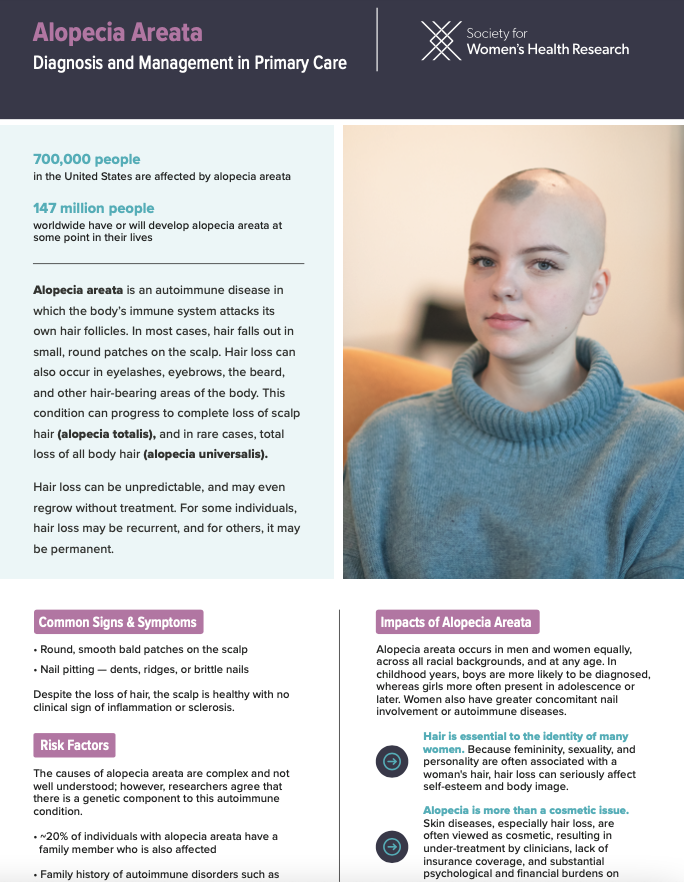The cause of alopecia totalis is believed to be an autoimmune condition, although the exact trigger is unknown. Genetic and environmental factors are thought to contribute to the development of this condition.
Treatment options may include corticosteroids to suppress the immune system and promote hair regrowth. Risk factors for alopecia totalis include a family history of the condition and certain autoimmune disorders. The primary symptom of alopecia totalis is a complete loss of hair from the scalp.
It may be accompanied by discomfort, itching, or tingling sensations. If you are experiencing these symptoms, it is important to consult with a doctor for diagnosis and appropriate treatment.

Causes Of Alopecia Totalis
The exact cause of alopecia totalis is yet to be discovered, but experts believe it is an autoimmune condition. Both genetic and environmental factors can contribute to this condition, and most people who experience it have a genetic disposition. Treatment options include corticosteroids to suppress the immune system and promote hair regrowth.
Genetic Factors
One of the primary causes of Alopecia totalis is genetic. It is largely agreed upon by experts that individuals who experience this condition often have a genetic disposition to it. In other words, if there is a family history of alopecia or other autoimmune conditions, the risk of developing Alopecia Totalis may be higher.
Environmental Factors
Environmental factors also play a role in the development of Alopecia totalis. Although the exact triggers are not fully understood, factors such as stress, trauma, or exposure to certain chemicals or pollutants can potentially influence the onset of this condition. It is important to note that while these factors can contribute to the development of Alopecia totalis, they do not guarantee its occurrence in every individual.
Autoimmune Condition
Alopecia totalis is widely believed to be an autoimmune condition. This means that the immune system, which normally protects the body from harmful substances, mistakenly attacks the hair follicles, leading to hair loss. The exact reason why the immune system malfunctions in this way is still unknown, but it is thought to be a combination of genetic and environmental factors that trigger the autoimmune response.
In conclusion, the causes of Alopecia totalis involve a complex interplay between genetic factors, environmental triggers, and autoimmune responses. While having a genetic predisposition increases the risk, environmental factors such as stress and exposure to certain substances may also contribute to its development. Understanding these causes can help individuals better manage and prevent the onset of Alopecia totalis.
Symptoms Of Alopecia Totalis
Alopecia totalis is a condition characterized by the complete loss of all head hair. This form of alopecia can start as alopecia areata, which causes patchy hair loss. However, in the case of Alopecia totalis, the hair loss extends to the entire scalp, leaving individuals completely bald. Understanding the symptoms of Alopecia totalis can help individuals identify the condition and seek appropriate treatment.
Complete Loss Of Head Hair
The most prominent symptom of alopecia totalis is the complete absence of hair on the scalp. This includes both the hair follicles and the shafts, resulting in a completely bald appearance. The loss of hair can occur suddenly or gradually over time.
Discomfort, Itching, Or Tingling Sensations On The Scalp
In some cases, individuals with Alopecia totalis may experience discomfort, itching, or tingling sensations on their scalp. These sensations can be caused by the inflammation that occurs due to the immune system attacking the hair follicles. It is important to note that not all individuals with Alopecia totalis experience these symptoms.
It is crucial to diagnose Alopecia Totalis accurately and seek appropriate treatment early on to manage the condition effectively. While there is no known cure for Alopecia Totalis, various treatment options, such as corticosteroids, immunotherapy, and hair transplant procedures, can help promote hair regrowth and manage the symptoms. It is recommended to consult with a dermatologist or a healthcare professional to discuss the best treatment approach based on individual circumstances.
Treatment And Risks Of Alopecia Totalis
When it comes to treating alopecia totalis, there are various options available. One common treatment is the use of corticosteroid medication to suppress the immune system. This medication helps to stop the immune system from attacking healthy tissue, which can result in less hair loss and even regrowth.
Corticosteroid Medication To Suppress The Immune System
Alopecia totalis is believed to be an autoimmune condition where the immune system mistakenly targets hair follicles. By using corticosteroids, such as prednisone, the immune system’s response can be suppressed, reducing inflammation and preventing further hair loss. These medications can be taken orally, applied topically, or administered through injections directly into the affected areas.
It is important to note that corticosteroids may have side effects, especially when taken in high doses or for prolonged periods. Some possible side effects include weight gain, mood changes, an increased risk of infections, and thinning of the skin. Therefore, it is crucial to follow your doctor’s recommended dosage and schedule and to monitor for any adverse reactions.
Possibility Of Regrowth
One of the hopeful aspects of treating alopecia totalis is the possibility of regrowth. While not guaranteed for everyone, some individuals may experience hair regrowth in the affected areas after using corticosteroid medication. This regrowth can take time and may not be permanent, but it can be a positive outcome for those struggling with the condition.
It is important to note that the success of regrowth varies from person to person. Factors such as the duration and severity of the condition, as well as individual responses to treatment, can influence the outcome. Additionally, regrown hair may be different in texture or color compared to the original hair, but this can be managed through styling and cosmetic solutions.
Unknown Long-term Risks
While corticosteroid medication can be effective in managing alopecia totalis, the long-term risks associated with its use are not fully understood. Prolonged use of corticosteroids may have systemic effects on the body, including bone loss, high blood pressure, cataracts, and diabetes. It is essential to weigh the potential benefits against the risks and work closely with your healthcare provider to monitor and minimize any potential complications.
Furthermore, it is crucial for individuals with alopecia totalis to consider alternative treatments and lifestyle changes that may help support overall health and well-being. This can include a balanced diet, stress management techniques, and taking care of the scalp and remaining hair.
In conclusion, corticosteroid medication is often employed to suppress the immune system and potentially promote regrowth in individuals with alopecia totalis. However, it is important to be aware of the associated risks and work closely with a healthcare provider to determine the most suitable treatment approach.


Frequently Asked Questions Of Alopecia Totalis: Causes, Symptoms, Treatment, And Risks
What Triggers Alopecia Totalis?
The exact cause of alopecia totalis is not known, but experts believe it is an autoimmune condition. It is believed that genetic and environmental factors play a role in triggering this condition.
What Is The Best Treatment For Alopecia Totalis?
The best treatment for alopecia totalis is corticosteroids prescribed by a doctor. These suppress the immune system to prevent it from attacking healthy tissue, reducing hair loss and promoting hair regrowth.
Has Anyone Recovered From Alopecia Totalis?
Yes, there have been cases of recovery from alopecia totalis. Treatment options include corticosteroids to suppress the immune system, which can lead to hair regrowth in affected areas.
What Autoimmune Disease Causes Alopecia?
Alopecia areata, an autoimmune disorder, causes alopecia (hair loss). It is often associated with other autoimmune diseases like vitiligo and Hashimoto’s thyroiditis. Genetic and environmental factors contribute to its development. Treatment includes corticosteroids to suppress the immune system and promote hair regrowth.
Conclusion
Alopecia Totalis is a complex condition with various causes, symptoms, treatment options, and risks. While the exact cause is unknown, experts believe it is an autoimmune disorder, influenced by genetic and environmental factors. Treatment typically involves corticosteroids to suppress the immune system and promote hair regrowth.
It is important to consult a doctor for proper diagnosis and personalized treatment. Remember, early detection and intervention can make a significant difference in managing this condition. Stay informed and seek professional guidance to tackle Alopecia Totalis effectively.
DIY hair oils are some of the most important ingredients to have in your beauty arsenal. They add shine, manage frizzy hair, and help improve your hair health.